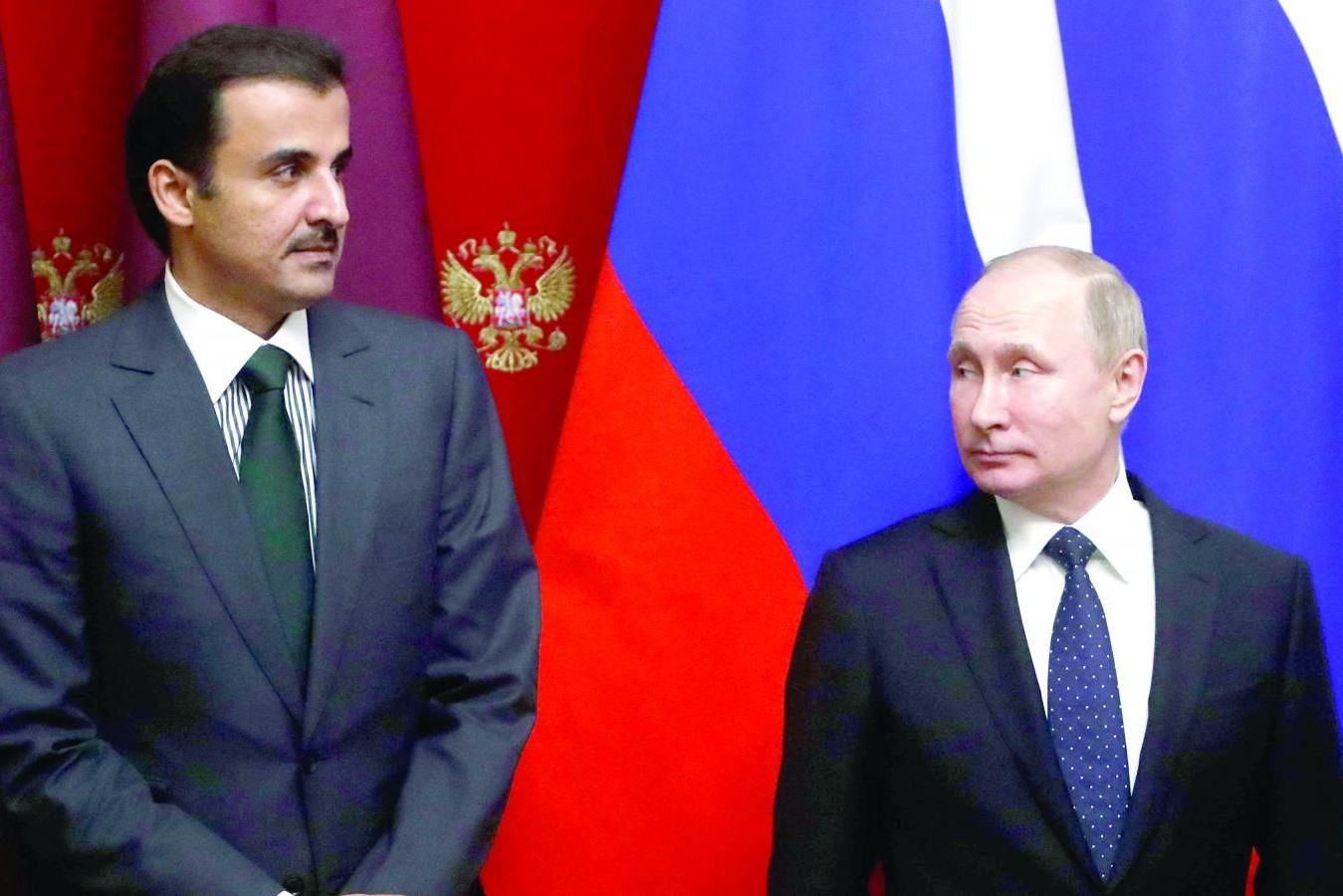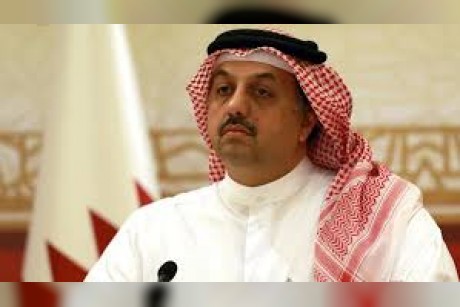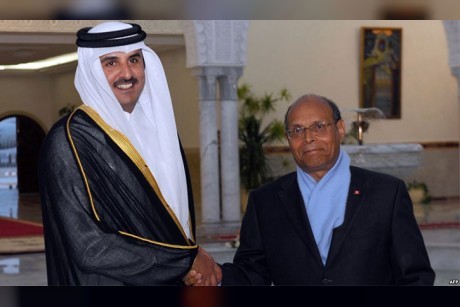Qatar has continued regional and international outreach with state visits to Sudan and Russia but also has carried on with antagonistic behaviour with its Gulf Arab neighbours.
Qatari Emir Sheikh Tamim Bin Hamad al-Thani met with Russian President Vladimir Putin March 26 in Moscow, covering, a Russian statement said, bilateral cooperation and the situation in Syria.
“We count on our Russian friends, with whom we have a cooperative relationship, knowing that Russia plays a significant role in the problems of the Arab world,” Sheikh Tamim said at the start of talks with Putin.
“Even though we have solid ties and mutual trust, we must go further to reinforce our relations in all areas,” he added, despite being on opposite ends of the conflict in Syria,
Theodore Karasik, a senior adviser with Gulf State Analytics, a Washington think-tank, wrote last year that “Qatar is throwing its financial muscle to woo Russia in a bid to regain lost political influence in the Syrian conflict and the broader Middle East.”
Qatar has been isolated regionally since last June when Saudi Arabia, the United Arab Emirates, Bahrain and Egypt severed ties with Doha accusing it of financing extremist groups and interfering in their sovereign affairs, allegations Qatar denies.
The trip to Moscow yielded lacklustre results and ended a day earlier than expected, regional publications reported. Sheikh Tamim’s visit came at a time Russia finds itself isolated by Western countries over allegations its government poisoned Putin’s political enemies in the United Kingdom and the expulsion of 23 Russian diplomats.
“Moscow first needs to get itself out of its own predicament with Western nations before it can think about getting Qatar out of its Gulf dilemma,” a Western diplomat said.
Doha is in hot water with the United States following the revelation that one of US President Donald Trump’s main fundraisers filed a lawsuit against Qatar over alleged e-mail hacking.
Venture capitalist and Trump supporter Elliott Broidy accused Qatar of attempting to discredit him by hacking and leaking e-mail messages centred on his dealings with the Trump administration and the United Arab Emirates.
The Wall Street Journal reported that Broidy’s lawsuit claimed that Qatar’s representatives identified him as an “impediment to their plan to improve the country’s standing in Washington and developed an effort to discredit him.” The lawsuit was filed against Qatar and one of the country’s lobbyists in Washington.
“This is a case about a hostile intelligence operation undertaken by a foreign nation” against American citizens “who have spoken out against that country’s support for terrorism and who have entered into significant business relationships relating to defence and counterterrorism with a rival nation,” the Wall Street Journal reported that the lawsuit said.
The United Arab Emirates announced on the same day of the US lawsuit that two Qatari fighter jets had flown dangerously close to two UAE commercial planes in Bahraini airspace. The UAE’s General Civil Aviation Authority (GCAA) called the action “a flagrant and serious threat to the civil aviation and air navigation safety.”
A statement by the GCAA said the pilot of one of the commercial aeroplanes made emergency manoeuvres to avoid a collision with the Qatari fighter jet.
“The GCAA condemns such irresponsible acts against civilian air traffic on regular, scheduled service on flight-path known to the International Civil Aviation Organisation (ICAO) and reiterates the UAE right to take all necessary actions, granted by the international law,” the statement said, adding that this was the third such incident in recent months.Bahrain filed an official complaint with the ICAO, labelling the incident an “irresponsible act.”
In what is likely to continue tensions with its neighbours, Qatar said it would invest $4 billion to overhaul Sudan’s Red Sea Port of Suakin, which the government in Khartoum recently leased to Turkey.
There are concerns among most Gulf Cooperation Council countries and Egypt that Turkey plans to build a naval base on the island. Ankara denies the rumours.
Saudi Arabia and its allies do not agree with Turkey on many issues, especially its support for the Muslim Brotherhood movement, which is outlawed in several countries.



